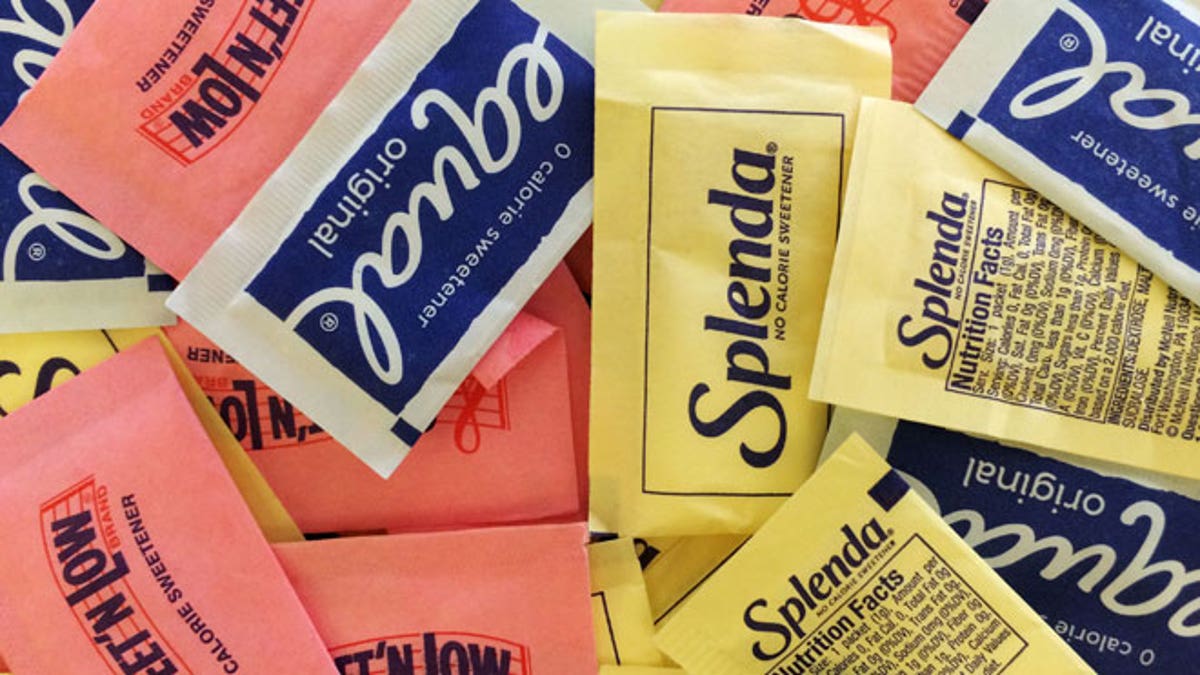
(AP)
Sugar— and especially high-fructose corn syrup— now represents by far the largest source of calories for Americans and is a major contributing factor to the U.S. obesity epidemic. According to the Cleveland Clinic, consuming excess sugar has also been linked to an increased risk of inflammatory diseases, high blood pressure and diabetes.The American Heart Association recommends women limit their daily consumption of daily added sugars to about 6 teaspoons, or 100 calories, and men to about 9 teaspoons, or 150 calories.
That standard alone may be challenging enough to meet, but as sugar in the Western diet often hides in places consumers don't realize, spotting it and limiting intake can be even more difficult.
Here are 5 forms of sugars that can either harm or benefit your health:
Simple sugars
Dextrose, fructose, and glucose are all monosaccharides, known as simple sugars. Table sugar and high-fructose corn syrup use these simple sugars in combination to create disaccharides. These are the most harmful sugars, wreaking havoc on your metabolic system and expanding your waistline. Try to avoid them.
Sugar alcohols
Xylitol, glycerol, sorbitol, maltitol, mannitol and erythritol are neither sugars nor alcohols but are becoming increasingly popular as sweeteners. They are incompletely absorbed in your small intestine, for the most part, so they provide fewer calories than sugar but often cause problems with bloating, diarrhea and flatulence.
Sugar substitutes
Sucralose (sold in the United States as Splenda) is not a sugar despite its sugar-like name and deceptive marketing slogan, “made from sugar.” It’s a chlorinated artificial sweetener in line with aspartame (Equal, NutraSweet) and saccharin— with the potentially detrimental health effects to match. Research suggests sucralose may impact the potency of medication, expose the body to toxins and even reduce good gut bacteria, among other risks.
Sugar-laden additives
Agave syrup was all the rage a few years ago, as it was heralded for having a low glycemic index and marketed as an additive that wouldn’t cause blood sugar spikes. But it is typically highly processed and contains up to 80 percent fructose— that means high-fructose corn syrup has less fructose than agave syrup. The end product does not even remotely resemble the original agave plant’s nectar.
Honey, on the other hand, is about 53 percent fructose; in its processed form it is essentially the same as sugar, maybe even a little worse.
Healthier alternatives to sugar
However, honey in its raw form— a product easily found in health-food stores and at farmers markets— has a host of health benefits, including disease-fighting antioxidants. Use it in moderation.
Coconut sugar, brown rice syrup, and yacon root powder and syrup can similarly offer sweetness without posing health risks. Dr. David Perlmuttter, a published author and an expert in preventative medicine and neurology, recommends stevia, which is derived from a South American plant and is completely healthy in its natural state.
Carol Alt is the author of the three cookbooks: "Eating in the Raw," "The Raw 50" and "Easy Sexy Raw." As one of the world’s first supermodels, Carol has graced the covers of more than 700 magazines, including two Sports Illustrated swimsuit issues. She is an accomplished spokeswoman, a healthy lifestyle expert and one of the raw food movement’s most recognized advocates. Her newest book, "A Healthy You," was published in May 2015 from Dey Street Books and is available on her website CarolAlt.com.








































